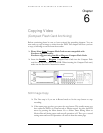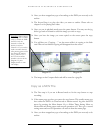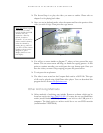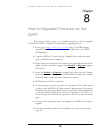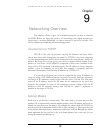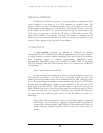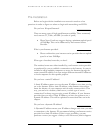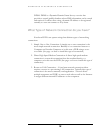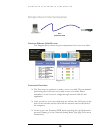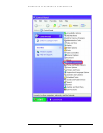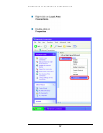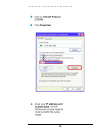
EVERFOCUS ELECTRONICS CORPORATION
Gateway Address
Each host in a LAN has a gateway. A gateway address is composed of four
octets (numbers in the range of 0 to 255) separated by decimal points. The
gateway address is used to uniquely identify a host or computer on the LAN
which assigns the IP addresses to your network. For example, a Linksys router has
an IP address of 192.168.1.1. If you were using this type of router within your
LAN, then your gateway would be the IP address of the Linksys router. The
reason this would be your gateway is because the Linksys is assigning the IP
addresses for your network therefore the Linksys would be the gateway to your
network. This is similar to the zip code of your address.
Virtual Ports
A port number represents an endpoint or "channel" for network
communications. Port numbers allow different applications on the same computer
to utilize network resources without interfering with each other. Port numbers
most commonly appear in network programming, particularly socket
programming. Sometimes, though, port numbers are made visible to the casual
user. For example, some Web sites a person visits on the Internet use a URL like
the following:
http://www.everfocus.com:8100/
In this example, the number 8100 refers to the port number used by the
Web browser to connect to the Web server. Normally, a Web site uses port
number 80 and this number need not be included with the URL (although it can
be). In IP networking, port numbers can theoretically range from 0 to 65535. Most
popular network applications, though, use port numbers at the low end of the
range (such as 80 for HTTP). This could be similar to the front door of your
house. Without the door to the house being open you could not enter it. This is
the same case with ports on a network. If the ports for a specific IP address are
not open then you could not gain access to that IP address or what it is
addressing.
Please Note: The term port also refers to several other aspects of network
technology. A port can refer to a physical connection point for peripheral
devices such as serial, parallel, and USB ports. The term port also refers to
certain Ethernet connection points, such as those on a hub, switch, or
router.
61



